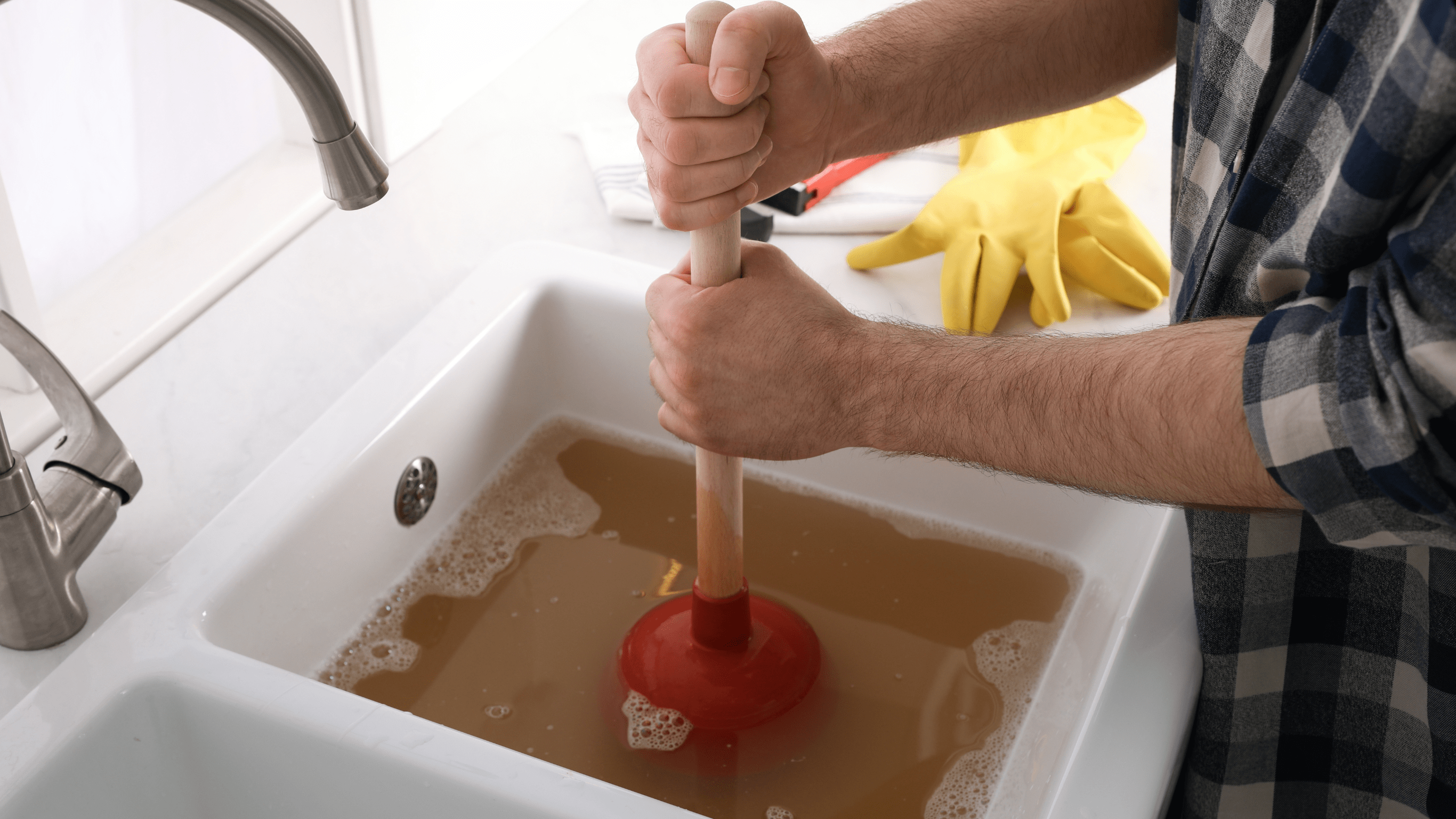The Most Common Causes of Clogged Drains (& How to Fix Them)
Clogged sinks and toilets aren’t uncommon, but they are largely preventable. With the proper maintenance and habits, you can eliminate some of the common causes of clogged drains, helping you avoid clogs and even emergency plumbing problems.
The Most Common Causes of Clogged Drains
Hair
One of the better-known causes of clogs, hair can easily accumulate and clog your drains. Both your hair and your pet’s hair can lead to a clog. Even if you have short hair, it can accumulate over time and combine with other cloggers, like soap scum, and clog your drains.
Soap
Although the drain seems like the natural place for soap to go, it can actually clog your drain. Soap scum or residue is a natural result of using soap and detergent. It can accumulate over time, particularly in shower and bathroom drains.
Usually, soap scum will buildup slowly, leading to a gradual clog. If you notice a change in how quickly your shower or sink drains, it’s time to call a plumber, so you can prevent the problem from getting worse.
Dirt
Again, it seems like down the drain is the natural place for dirt to go. Unfortunately, in large quantities, dirt can clog your drains. Dirt can also combine with other cloggers like soap and hair and cause a stubborn clog.
Food Waste
Whether it’s through your kitchen sink or your dishwasher, food waste belongs in the compost, not in your drains. Food waste can easily accumulate in your drains and result in stubborn clogs.
Even if you have a garbage disposal, avoid intentionally putting food down the drain. The blades or garbage disposals often can’t handle large amounts of food, meaning you could be causing a clogged drain.
Fat & Grease
Fat, grease, or oil might be liquid when you put it down the drain, but it will quickly solidify once it cools. This solid grease can easily clog your drain. If you have leftover oil from cooking or frying, never put it down the drain.
Tree Roots
Tree roots are usually a concern in older homes with large trees outside. As trees grow and their roots expand, those roots can make their way into your pipes. Even a small crack means tree roots can grow into your pipes. As the roots grow into your pipes, they become larger, causing a clog and other damage.
Flushing “Unflushables”
There are certain things that should never go in your toilet. Aside from the 2 most obvious items, the only other thing that should go in your toilet is a moderate amount of toilet paper. Anything else is unflushable, as they can lead to a clogged toilet and drains.
Some of the most common unflushable items include:
- Baby wipes and wet wipes (yes, even “flushable” ones)
- Paper towels
- Feminine hygiene items
- Dental floss
- Cotton balls or pads
- Cotton swabs (Q-tips)

The Best Ways to Fix a Clogged Drain
Prevention
In a perfect world, you wouldn’t have a clogged drain at all. In order to help prevent clogs, avoid putting anything other than water down your drain by:
- Using drain covers in sinks and showers
- Scraping dishes into the trash or compost
- Never putting grease down the drain
- Never flushing unflushables down the toilet
DIY Ways to Fix a Drain
Even with the best intentions, it’s still possible to end up with a clog. If you notice a clog or a slowly draining sink, never leave it. Clogs rarely get better on their own. In fact, leaving a clog will likely make it worse. Instead, take these steps when you notice a clog:
- Look for and remove obvious objects, food, hair, etc.
- Try a drain cleaner or drain opener, but only use the recommended amount on the label and only try it once.
- Hot water, baking soda, and vinegar can also work as a DIY drain cleaner. Pour 2-3 litres of hot water down the drain, followed by ½ cup of baking soda. Let the baking soda sit for 5 minutes, then follow it with ½ cup of vinegar mixed with ½ cup of hot water.
- Try a plunger.
- Try an auger or drain snake, if you’re familiar with how to use it safely.
When to Call a Plumber
If you tried the methods above and you’re still left with a clog, it’s time to call a plumber. A plumber is likely needed to fix severe clogs, or clogs where no water at all is getting through at all.
If necessary, your plumber can use a pipe camera inspection to determine the cause of the clog and the appropriate fix. Remember never to leave a clog, as it will only get worse over time and can cause further damage to your pipes.


